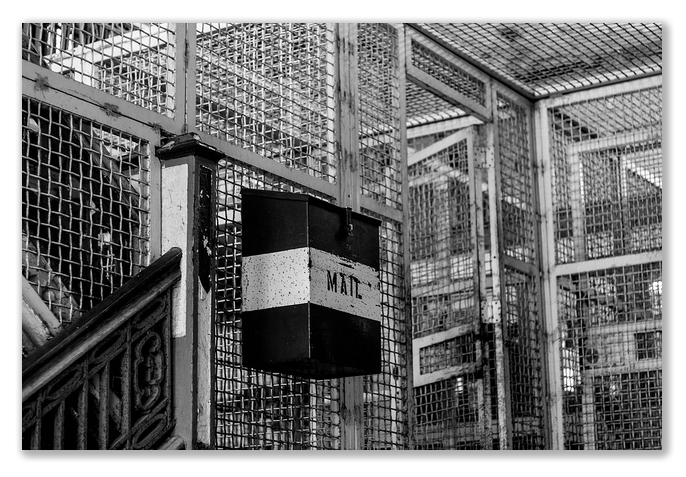We post news and comment on federal criminal justice issues, focused primarily on trial and post-conviction matters, legislative initiatives, and sentencing issues.

YOU’VE GOT MAIL
Federal Bureau of Prisons Director Colette Peters announced last week that the agency will introduce new procedures in November 2024 in all prisons other than minimum-security facilities. All general correspondence (including photos and commercial greeting cards) sent to prisoners will be photocopied, and only color photocopies will be provided to the inmate.
 The new restrictions, which Peters said was a result of “[t]he rise in illicit substances sent to incarcerated individuals through US mail,” will require that all incoming general correspondence must be on plain white paper and in a white envelope. No glitter, labels, stickers, perfume, lipstick, crayon, or marker will be accepted.
The new restrictions, which Peters said was a result of “[t]he rise in illicit substances sent to incarcerated individuals through US mail,” will require that all incoming general correspondence must be on plain white paper and in a white envelope. No glitter, labels, stickers, perfume, lipstick, crayon, or marker will be accepted.
Legal and special mail will continue to be opened in the presence of the inmate after BOP investigators verify that the identified sender really is the sender. Peters warned that while efforts would be made to deliver legal mail within 24 hours, that may not happen because “thorough vetting is required to ensure the highest level of security.”
A BOP mailroom supervisor at USP Atwater died last August, apparently from contact with a drug-laden document sent to an inmate by legal mail. Speculation in the media at the time blamed fentanyl for the death, but the three defendants charged in the death thus far have been accused only of a conspiracy to distribute only one named drug, “AB-CHMINACA and MDMB-4en-PINACA, commonly referred to as Spice.”
This is not to say that fentanyl was not a factor, nor that it was uninvolved in the poisoning of a BOP employee at USP Thomson in early September, just that it has not yet been identified as being present. In the Atwater case, it is unlikely that autopsy results will be revealed prior to trial.
United States v. Jones, Case No 1:24-cr-209 (E.D.Cal.)
BOP, Message from the Director and CPL-33 President (October 16, 2024)
AFGE 4070 Press Release, A Correctional Officer was exposed to what was believed to be amphetamines. The staff member was given Narcan before being transported to a local hospital. (September 2, 2024)
– Thomas L. Root



